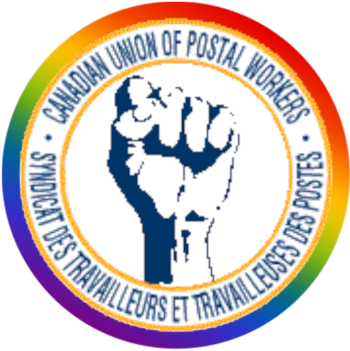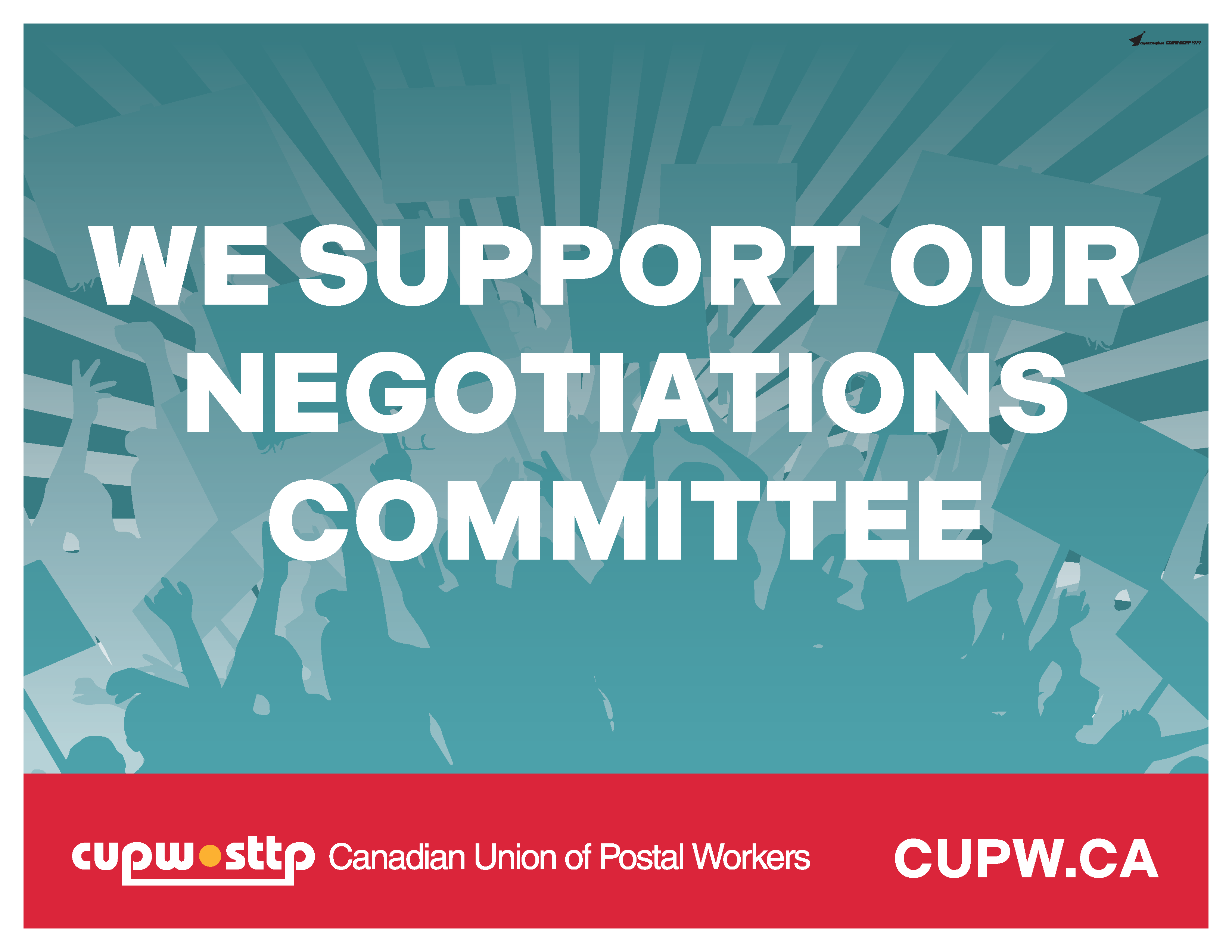
Friday October 15 2021
October 16 is the 40th anniversary of the creation of Canada Post Corporation under the Canada Post Corporation Act, intended to make the postal service more autonomous: to help it compete against other parcel and courier services, to maintain financial self-sufficiency, and to improve labour relations in the postal service after several conflicts in the 1970s and 80s.
Among other things, the Act defines a letter, and grants Canada Post its “exclusive privilege” to deliver letter-mail, while leaving it to compete with private-sector operators in other products and services. The CPC Act was actually passed unanimously in the House of Commons!
CUPW, with the Canadian Labour Congress’ support, had campaigned for many years for the creation of Canada Post as an independent crown corporation, and expected to be able to achieve more in bargaining than we could bargaining directly with the Post Office Department, including to negotiate for service expansion and job creation. CUPW played a part in negotiating the text of the Act. There are many things in the Act that, while they still affect us today, today’s members may not be familiar with:
RSMCs
The new Canada Post Corporation came with a stipulation that rural route couriers (now known as RSMCs) were deemed contractors, without the right to join the union. This set up our decades-long struggle for inclusion and gender equity within the postal service (as seen in last year’s documentary “Justice and Dignity for All”). At the same time, rural routes over $10,000 no longer went up for tender after the Corporation was created.
Temps
Once the CPC was created, postal workers were under the Canada Labour Code instead of the Public Service Labour Relations Act. That meant we could negotiate better wages and conditions for temporary workers at Canada Post, which we quickly did. It also enabled us in later rounds to get opportunities, based on seniority, for temps to gain regular employment status.
Pension
Postal workers belong to the Canada Post Corporation Pension Plan rather than the Public Service Pension Plan (aka Public Service Superannuation), meaning CUPW is the biggest union representing members of the plan – that is, negotiating our pension – and all the worker representatives on the joint Pension Advisory Committee are postal workers, who are committed to defend our Defined Benefit pension plan.
Bargaining Conditions and Expanded Services
Bargaining with a crown corporation instead of the Post Office Department means that we’re working within the budget of Canada Post operations – and its mandate to be financially self-sustaining and to meet the population’s changing needs – and not the complex ins and outs of the entire government’s finances.
In our first bargaining round with the Corporation, we got our job security provisions, increased pay for seasonal casuals, employer-paid dental and vision coverage, night recovery leave, and transfers and promotions by seniority.
In that first round, we also negotiated new services at PO counters and more retail outlets with expanded services.
Financial Self-Sustainability
Are you tired of correcting residents who say “my taxes pay your salary”? They would be more correct to say their postage pays your salary – but the point is that Canada Post Corporation is self-funding and operates at arm’s length from the federal government, not on tax revenues.
And there are many other implications: for instance, if Canada Post were still a direct government agency, we could have been caught up in the Phoenix payroll fiasco which the public service unions are still trying to get resolved.
Today
We may not always be satisfied with the way our employer behaves, but CUPW believes that there is better potential with CPC for greening the postal service, expanding services (including postal banking), and improving working conditions than there would be if we were still under the Post Office Department.
Just as we played a historic role in shaping the destiny of the public postal service, we continue to do so with our major campaigns and we recognize all the past efforts that established the context for the gains we’re campaigning for today.
In Solidarity,
Jan Simpson
